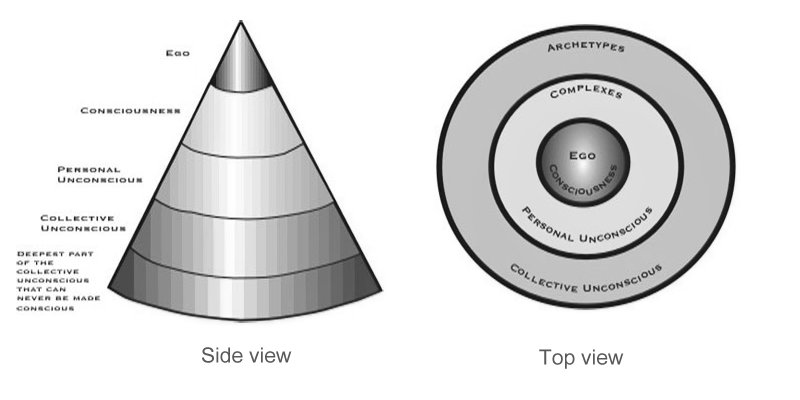

Terminology
Turning to basic concepts, Jung once defined the unconscious as being all that is unknown to the individual. As he put it: "I call 'unconscious', in the widest sense, everything that is not represented in consciousness, whether momentarily or permanently" (Jung, CW 1, note to par. 166). Later, he wrote, "The unconscious contains all those psychic events which do not possess sufficient intensity of functioning to cross the threshold dividing the conscious from the unconscious. They remain, in effect, below the surface of consciousness, and flit by in subliminal form. Some is potentially knowable, while probably most will never become conscious in any person's lifetime (Jung, CW 3, par. 439).